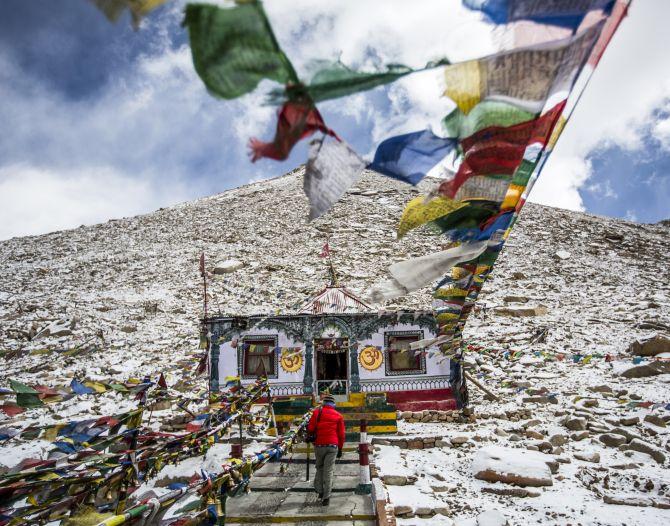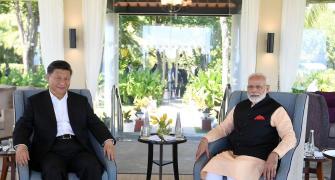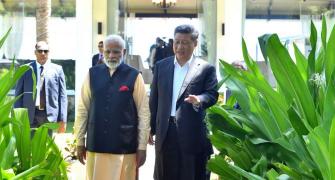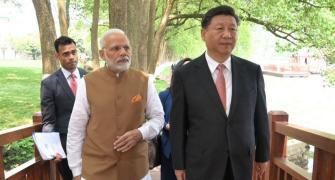Sukhoi-30 fighter jets of the Indian Air Force were flying in Eastern Ladakh in the midst of escalating tension between Indian and Chinese troops following their violent face-off at Pangong Tso lake area that left many of them injured, sources have confirmed.

The situation in the region remained tense as troops of the two countries maintained a close watch on each other, demonstrating an aggressive posturing even seven days after the violent clash involving 250 soldiers from both sides, they said.
The troops held on to their respective positions and even reinforcements were brought in an apprehension of further escalation in tension, the sources said when asked about the face-off which began on the evening of May 5.
The front-line combat jets were carrying out sorties on May 6, the day a couple of Chinese military helicopters were spotted flying close to the un-demarcated Sino-India border area after the confrontation between the troops the previous evening, they said.
It is not clear whether the jets were deployed in view of the face-off or due to the spotting of the Chinese choppers.
IAF sources said its aircraft have been carrying out routine sorties in the region.
"The situation remains tense notwithstanding the two sides agreeing to disengage during a meeting of local commanders on May 6," said a source adding some troops are being kept by both sides in the area.
When asked, an army spokesperson said: "Incidents of face-off and aggressive behaviour occur on the Line of Actual Control. Patrols disengage after local level interaction and dialogue. Temporary and short duration face-offs occur as boundary is not resolved."
"I clarify that there is no continuing face-off at the Pangong Tso lake. There is no build-up of armed troops in the area," he said.
The sources said the spotting of Chinese helicopters in the area was nothing unusual as India too flies a fleet of military choppers in the area from three bases in the region.
IAF sources said a range of its aircraft, which also comprises Sukhoi-30 jets, have been carrying out routine sorties in the region including on May 6, adding there was no violation of Indian airspace in the area by the Chinese side.
The IAF conducts routine sorties in the region from Leh and Thoise airbases.
On May 5, scores of Indian and Chinese army personnel clashed with iron rods, sticks, and even resorted to stone-pelting, sources said, adding a number of soldiers on both sides sustained injuries in the incident.
In a separate incident, nearly 150 Indian and Chinese military personnel were engaged in a face-off near Naku La Pass in the Sikkim sector of the Sino-India border on Saturday.
At least 10 soldiers from both sides sustained injuries in the incident.
The troops of India and China were engaged in a 73-day stand-off in Doklam tri-junction in 2017 which even triggered fears of a war between the two nuclear-armed neighbours.
The India-China border dispute covers the 3,488-km-long Line of Actual Control, the de-facto border between the two countries.
China claims Arunachal Pradesh as part of southern Tibet while India contests it.
Both sides have been asserting that pending the final resolution of the boundary issue, it is necessary to maintain peace and tranquillity in the border areas.
Prime Minister Narendra Modi and Chinese President Xi Jinping held their first informal summit in April 2018 in the Chinese city of Wuhan, months after the Doklam standoff.
In the summit, the two leaders decided to issue "strategic guidance" to their militaries to strengthen communications so that they can build trust and understanding.
Modi and Xi held their second informal summit in Mamallapuram near Chennai in October last year with a focus on further broadening bilateral ties.










